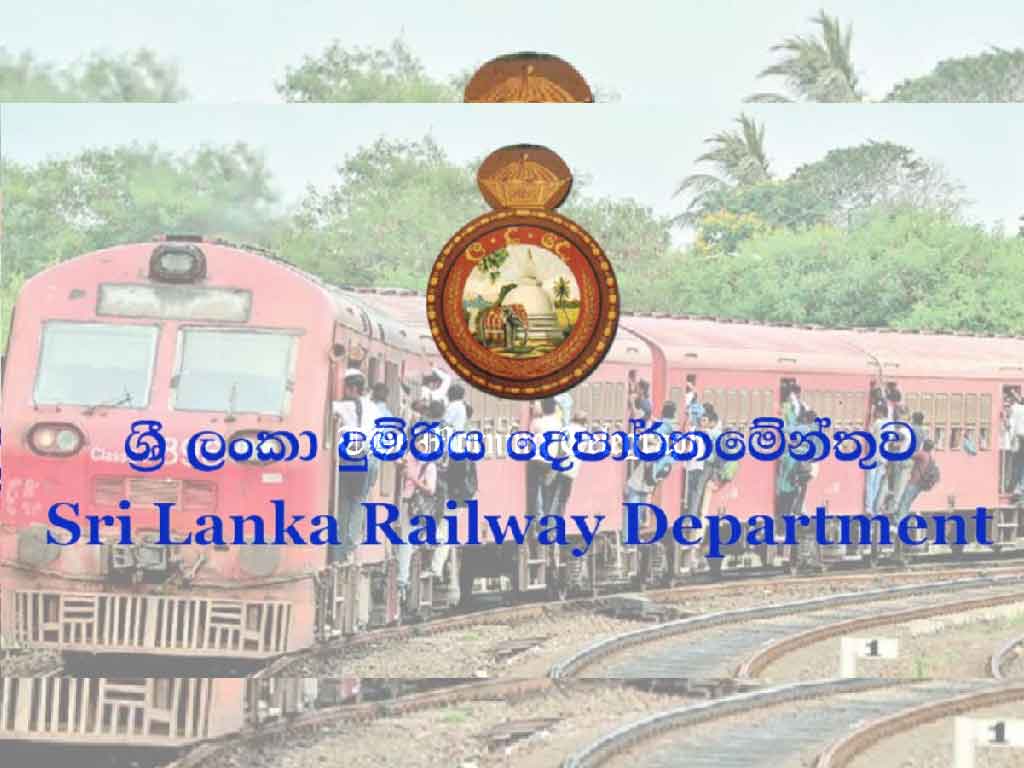
A 2023 audit report on Sri Lanka’s Railway Department has revealed extensive financial mismanagement, highlighting improper overtime payments, failure to implement proper attendance tracking, and excessive utility expenses for employee housing. The findings have raised serious concerns about the department’s internal controls and financial accountability, prompting calls for immediate reform.
Overtime Payment Irregularities
One of the most significant issues uncovered in the audit is the improper calculation of overtime payments to train drivers. According to the General Manager of Railways Circular No. 4/20/64/2/68, issued on January 13, 2007, and Section 5.6 of Chapter VII of the Establishments Code, overtime should be paid only for hours worked beyond the standard 42-hour workweek. However, since 2007, the department has been paying overtime without deducting the regular 42 hours, leading to substantial overpayments.
This violation has persisted for over 15 years, despite repeated reminders from oversight bodies to adhere to proper payment protocols. The audit report stresses that the department must align overtime payments with the stipulated guidelines to prevent further financial losses. Industry experts estimate that millions of rupees may have been unnecessarily disbursed each year due to this oversight.
Lack of Attendance Monitoring
Another critical issue identified in the report is the failure to implement a fingerprint-based attendance system for train drivers, despite directives from Public Administration Circular No. 09/2009, issued on April 16, 2009. The absence of an automated attendance system has resulted in inaccurate records of working hours, further inflating overtime claims.
The report underscores that manual attendance tracking is susceptible to errors and manipulation, leading to financial discrepancies. The auditors have recommended the immediate installation of fingerprint machines across all railway depots and offices to ensure accurate timekeeping and reduce fraudulent overtime claims.
Excessive Utility Expenses for Employee Housing
The audit also reveals excessive spending on water bills for employee housing in Kotalawala Pura, Ratmalana, allocated to employees of the Chief Mechanical Engineering Sub-Department. Over the past three years, the department has paid a staggering Rs. 923.98 million in water bills for 546 housing units.
Despite this massive expenditure, employees have been charged a token fee of just Rs. 5 per month for water usage, a rate that is far below the actual cost. The report highlights that this subsidy has placed a significant financial burden on the department, which is already grappling with limited resources.
To address this issue, the audit recommends installing individual water meters for each housing unit to ensure accurate billing and fair cost-sharing among residents. This measure is expected to reduce the department’s financial burden and promote responsible water usage among employees.
Additional Findings and Recommendations
Beyond these major issues, the audit report also highlighted the following concerns:
- Maintenance Backlog: Several critical railway assets, including locomotives and passenger coaches, are in dire need of maintenance due to insufficient funding and poor resource allocation.
- Procurement Irregularities: The report flagged instances of non-compliance with procurement guidelines, leading to inflated costs for spare parts and equipment.
- Lack of Internal Audits: The department’s internal audit mechanisms were found to be weak, with irregular audits and delayed implementation of corrective actions.
The report emphasizes the need for a comprehensive restructuring of the Railway Department’s financial and operational systems. Key recommendations include:
- Implementing a Centralized Financial Management System to improve transparency and oversight of expenditures.
- Conducting Regular Internal Audits to identify and address financial discrepancies promptly.
- Establishing Performance Metrics for employees to ensure accountability and efficient use of resources.
- Introducing Targeted Subsidies for essential services, such as water and electricity, to reduce unnecessary financial burdens.
Public and Government Reactions
The revelations have sparked widespread criticism from both the public and government officials. Commuters and taxpayer advocacy groups have expressed outrage over the misuse of public funds, calling for swift action to hold those responsible accountable.
Duminda Hulangamuwa, Senior Economic Advisor to the President, acknowledged the audit findings during a recent television interview. He emphasized that the government is committed to addressing financial mismanagement within state-owned enterprises (SOEs) and implementing necessary reforms to enhance their efficiency and sustainability.
“The Railway Department plays a crucial role in the country’s transportation infrastructure. We cannot afford to let mismanagement continue. The government is taking these audit findings seriously and will ensure that corrective measures are implemented without delay,” Hulangamuwa stated.
The Railway Department is expected to present a detailed action plan to address the audit findings and improve its financial management practices. Stakeholders, including the Ministry of Transport and the Treasury, will be closely monitoring the department’s progress in implementing these reforms.
As Sri Lanka faces ongoing economic challenges, improving the efficiency and accountability of state-owned enterprises like the Railway Department will be critical to ensuring the sustainable use of public funds and enhancing the quality of essential services for citizens.




